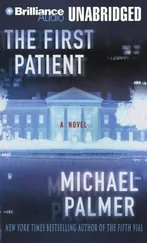Michael Ondaatje - The English Patient
Здесь есть возможность читать онлайн «Michael Ondaatje - The English Patient» весь текст электронной книги совершенно бесплатно (целиком полную версию без сокращений). В некоторых случаях можно слушать аудио, скачать через торрент в формате fb2 и присутствует краткое содержание. Жанр: Старинная литература, на русском языке. Описание произведения, (предисловие) а так же отзывы посетителей доступны на портале библиотеки ЛибКат.
- Название:The English Patient
- Автор:
- Жанр:
- Год:неизвестен
- ISBN:нет данных
- Рейтинг книги:4 / 5. Голосов: 1
-
Избранное:Добавить в избранное
- Отзывы:
-
Ваша оценка:
- 80
- 1
- 2
- 3
- 4
- 5
The English Patient: краткое содержание, описание и аннотация
Предлагаем к чтению аннотацию, описание, краткое содержание или предисловие (зависит от того, что написал сам автор книги «The English Patient»). Если вы не нашли необходимую информацию о книге — напишите в комментариях, мы постараемся отыскать её.
The English Patient — читать онлайн бесплатно полную книгу (весь текст) целиком
Ниже представлен текст книги, разбитый по страницам. Система сохранения места последней прочитанной страницы, позволяет с удобством читать онлайн бесплатно книгу «The English Patient», без необходимости каждый раз заново искать на чём Вы остановились. Поставьте закладку, и сможете в любой момент перейти на страницу, на которой закончили чтение.
Интервал:
Закладка:
The sea hospital was created out of bathing cabins along the beach that tourists had rented at the turn of the century. During the heat the old Campari umbrellas were placed once more into their table sockets, and the bandaged and the wounded and the comatose would sit under them in the sea air and talk slowly or stare or talk all the time. The burned man noticed the young nurse, separate from the others. He was familiar with such dead glances, knew she was more patient than nurse. He spoke only to her when he needed something.
He was interrogated again. Everything about him was very English except for the fact that his skin was tarred black, a bogman from history among the interrogating officers.
They asked him where the Allies stood in Italy, and he said he assumed they had taken Florence but were held up by the hill towns north of them. The Gothic Line. “Your division is stuck in Florence and cannot get past bases like Prato and Fiesole for instance because the Germans have barracked themselves into villas and convents and they are brilliantly defended. It’s an old story—the Crusaders made the same mistake against the Saracens. And like them you now need the fortress towns. They have never been abandoned except during times of cholera.”
He had rambled on, driving them mad, traitor or ally, leaving them never quite sure who he was.
Now, months later in the Villa San Girolamo, in the hill town north of Florence, in the arbour room that is his bedroom, he reposes like the sculpture of the dead knight in Ravenna. He speaks in fragments about oasis towns, the later Medicis, the prose style of Kipling, the woman who bit into his flesh. And in his commonplace book, his 1890 edition of Herodotus’ Histories , are other fragments—maps, diary entries, writings in many languages, paragraphs cut out of other books. All that is missing is his own name. There is still no clue to who he actually is, nameless, without rank or battalion or squadron. The references in his book are all pre-war, the deserts of Egypt and Libya in the 1930s, interspersed with references to cave art or gallery art or journal notes in his own small handwriting. “There are no brunettes,” the English patient says to Hana as she bends over him, “among Florentine Madonnas.”
The book is in his hands. She carries it away from his sleeping body and puts it on the side table. Leaving it open she stands there, looking down, and reads. She promises herself she will not turn the page.
May 1936 .
I will read you a poem, Clifton’s wife said, in her formal voice, which is how she always seems unless you are very close to her. We were all at the southern campsite, within the firelight .
I walked in a desert .
And I cried:
“Ah, God, take me from this place!”
A voice said: “It is no desert.”
I cried: “Well, but—
The sand, the heat, the vacant horizon.”
A voice said: “It is no desert.”
No one said anything .
She said, That was by Stephen Crane, he never came to the desert .
He came to the desert, Madox said .
July 1936 .
There are betrayals in war that are childlike compared with our human betrayals during peace. The new lover enters the habits of the other. Things are smashed, revealed in new light. This is done with nervous or tender sentences, although the heart is an organ of fire .
A love story is not about those who lose their heart but about those who find that sullen inhabitant who, when it is stumbled upon, means the body can fool no one, can fool nothing—not the wisdom of sleep or the habit of social graces. It is a consuming of oneself and the past .
It is almost dark in the green room. Hana turns and realizes her neck is stiff from stillness. She has been focused and submerged within the crabbed handwriting in his thick-leaved sea-book of maps and texts. There is even a small fern glued into it. The Histories . She doesn’t close the book, hasn’t touched it since she laid it on the side table. She walks away from it.
Kip was in a field north of the villa when he found the large mine, his foot—almost on the green wire as he crossed the orchard—twisting away, so he lost his balance and was on his knees. He lifted the wire until it was taut, then followed it, zigzagging among the trees.
He sat down at the source with the canvas bag on his lap. The mine shocked him. They had covered it with concrete. They had laid the explosive there and then plastered wet concrete over it to disguise its mechanism and what its strength was. There was a bare tree about four yards away. Another tree about ten yards away. Two months’ grass had grown over the concrete ball.
He opened his bag and with scissors clipped the grass away. He laced a small hammock of rope around it and after attaching a rope and pulley to the tree branch slowly lifted the concrete into the air. Two wires led from the concrete towards the earth. He sat down, leaned against the tree and looked at it. Speed did not matter now. He pulled the crystal set out of the bag and placed the earphones to his head. Soon the radio was filling him with American music from the AIF station. Two and a half minutes average for each song or dance number. He could work his way back along “A String of Pearls,” “C-Jam Blues” and other tunes to discover how long he had been there, receiving the background music subconsciously.
Noise did not matter. There would be no faint tickings or clickings to signal danger on this kind of bomb. The distraction of music helped him towards clear thought, to the possible forms of structure in the mine, to the personality that had laid the city of threads and then poured wet concrete over it.
The tightening of the concrete ball in midair, braced with a second rope, meant the two wires would not pull away, no matter how hard he attacked it. He stood up and began to chisel the disguised mine gently, blowing away loose grain with his mouth, using the feather stick, chipping more concrete off. He stopped his focus only when the music slipped off the wavelength and he had to realign the station, bringing clarity back to the swing tunes. Very slowly he unearthed the series of wires. There were six wires jumbled up, tied together, all painted black.
He brushed the dust off the mapboard the wires lay on.
Six black wires. When he was a child his father had bunched up his fingers and, disguising all but the tips of them, made him guess which was the long one. His own small finger would touch his choice, and his father’s hand would unfold, blossoming, to reveal the boy’s mistake. One could of course make a red wire negative. But this opponent had not just concreted the thing but painted all the characters black. Kip was being pulled into a psychological vortex. With the knife he began to scrape the paint free, revealing a red, a blue, a green. Would his opponent have also switched them? He’d have to set up a detour with black wire of his own like an oxbow river and then test the loop for positive or negative power. Then he would check it for fading power and know where the danger lay.
Hana was carrying a long mirror in front of her down the hall. She would pause because of the weight of it and then move forward, the mirror reflecting the old dark pink of the passageway.
The Englishman had wanted to see himself. Before she stepped into the room she carefully turned the reflection upon herself, not wanting the light to bounce indirectly from the window onto his face.
He lay there in his dark skin, the only paleness the hearing aid in his ear and the seeming blaze of light from his pillow. He pushed the sheets down with his hands. Here, do this, pushing as far as he could, and Hana flicked the sheet to the base of the bed.
Читать дальшеИнтервал:
Закладка:
Похожие книги на «The English Patient»
Представляем Вашему вниманию похожие книги на «The English Patient» списком для выбора. Мы отобрали схожую по названию и смыслу литературу в надежде предоставить читателям больше вариантов отыскать новые, интересные, ещё непрочитанные произведения.
Обсуждение, отзывы о книге «The English Patient» и просто собственные мнения читателей. Оставьте ваши комментарии, напишите, что Вы думаете о произведении, его смысле или главных героях. Укажите что конкретно понравилось, а что нет, и почему Вы так считаете.












